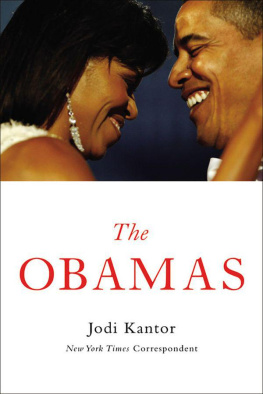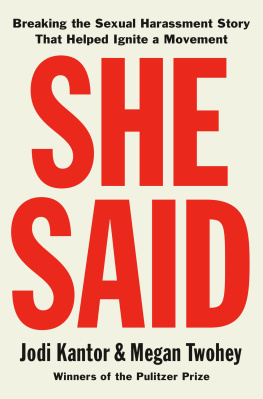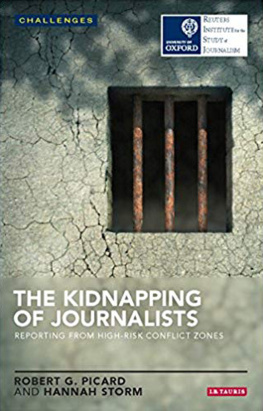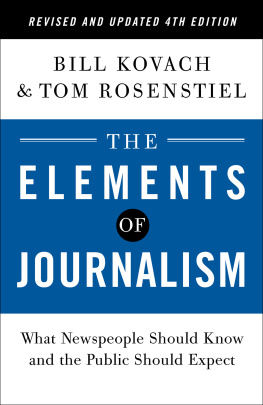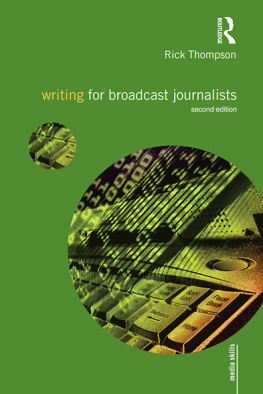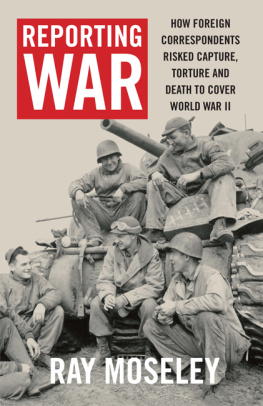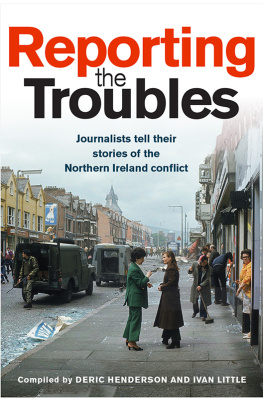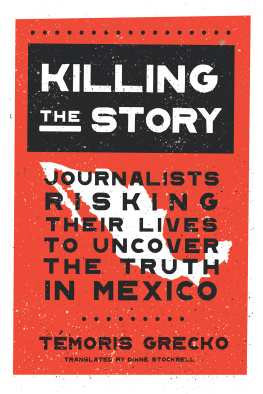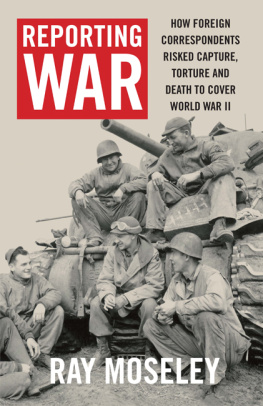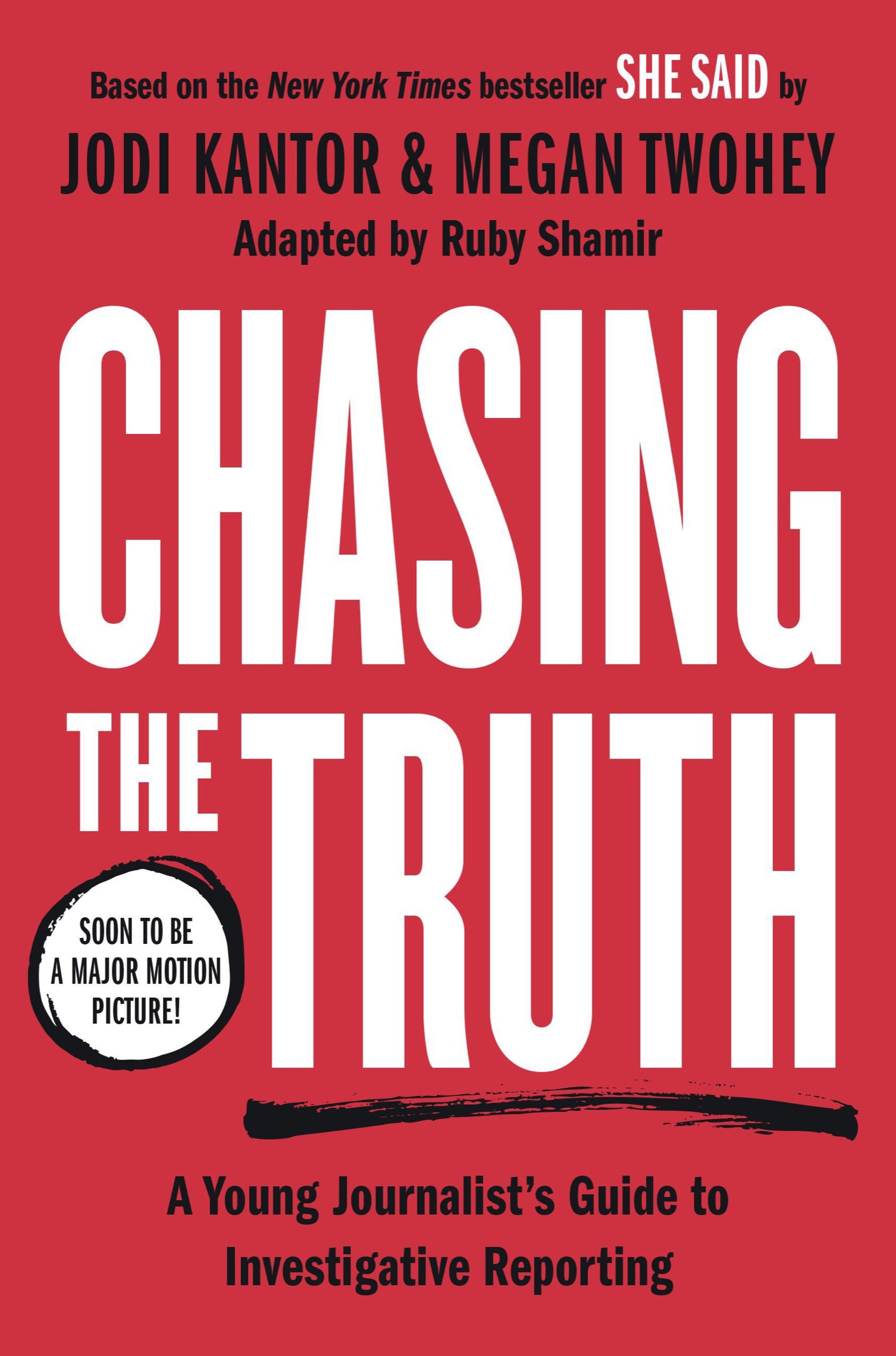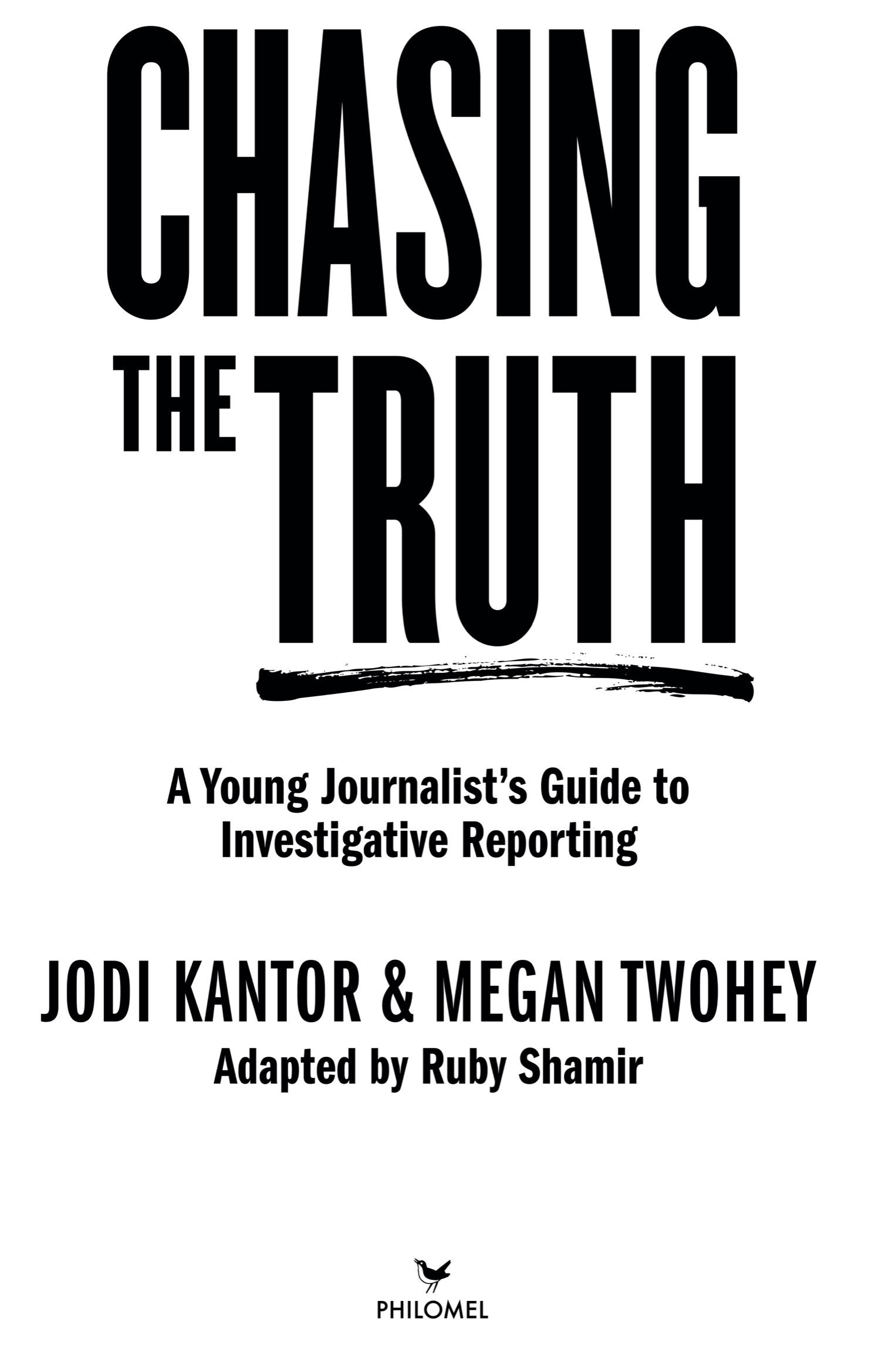Harvey Weinstein Paid Off Sexual Harassment Accusers for Decades by Jodi Kantor and Megan Twohey 2017 by The New York Times Company
Penguin supports copyright. Copyright fuels creativity, encourages diverse voices, promotes free speech, and creates a vibrant culture. Thank you for buying an authorized edition of this book and for complying with copyright laws by not reproducing, scanning, or distributing any part of it in any form without permission. You are supporting writers and allowing Penguin to continue to publish books for every reader.
Philomel Books is a registered trademark of Penguin Random House LLC.
Visit us online at penguinrandomhouse.com.
Library of Congress Cataloging-in-Publication Data is available.
Design by Ellice M. Lee, adapted for ebook by Michelle Quintero
This is a work of nonfiction. Some names and identifying details have been changed.
The publisher does not have any control over and does not assume any responsibility for author or third-party websites or their content.
NOTE TO READERS
Dear readers,
Welcome to our book and our partnership. In these pages, were inviting you on a journey to find the truth, hear from people who had previously been silenced, and hold powerful wrongdoers accountable.
This is also an invitation into investigative journalism.
Youre probably already immersed in general news coverage, reporting that accurately describes whats visible in the world around us. Presidential elections. Natural disasters. The deaths of notable public figures. This kind of journalism can connect us with other peoples struggles and joys and make all of us witnesses to history. Many school papers include news reporting: on basketball games won or lost, or the appointment of a new principal.
Investigative reporting has a different goal: to uncover whats been hidden, to reveal injustice or other wrongdoing. It isnt about being an activist or advocating for a particular point of viewthe only agenda is to follow the facts. Because facts are so powerful, this work can spur tremendous change. Over the years, investigative reporters have broken stories that have touched every aspect of our daily lives, spurring social movements, shifts in power, reforms, and greater safety. By investigating a break-in at the Watergate apartment complex in Washington, DC, Bob Woodward and Carl Bernstein revealed corruption that reached the highest levels of the White House and eventually brought down the Nixon presidency. We are proud that our investigation of harassment and abuse by the powerful Hollywood producer Harvey Weinstein fits into this tradition.
As you read this book, we want you to feel included and inspired. Maybe you dont know any reporters or authors or dont recognize many from backgrounds similar to yours. Its possible that you rarely encounter print newspapers in your community. Social media may be the main way that you and your friends get and share information. But young journalists can do investigative reporting as well. If you found that wealthy students were deploying test preparation and private counselors to an unfair advantage in college admissions, or that local elementary schools didnt have air-conditioning in the hot summers, or that the football team was hazing new members in abusive waysthose stories could light up discussion in your community and perhaps spur action.
In this book, weve tried to turn our work on Harvey Weinstein into a manual for this type of reporting. (To avoid confusion, we write about ourselves in the third person. In a first-person account of our reporting, which was collaborative but often involved us following separate threads, I could be either Jodi or Megan.)
Thank you for joining us for the duration of these pages, for puzzling through these events and clues as we have, for witnessing what we witnessed, and for hearing what we heard. We hope you feel welcome and that youll consider a lifetime commitment to this work, as a journalist, a source, or a reader.
Jodi Kantor and Megan Twohey
INTRODUCTION
IN 2017 WOMEN had more power than ever before. The number of jobs once held almost exclusively by menpolice officer, soldier, airline pilothad narrowed almost to a vanishing point. Women led nations including Germany and the United Kingdom, and companies such as PepsiCo and the car manufacturer General Motors. In one year of work, it was possible for a thirtysomething-year-old woman to make more money than all of her female ancestors had made in their combined lifetimes.
But all too often, women were sexually harassed. Scientists, restaurant servers, cheerleaders, executives, and factory workers had to smile past unwanted touches or gropes, stares or leers, or unwelcome advances to get the next tip, paycheck, or raise. Sexual harassment was against the lawbut it was also routine in some jobs. Women who spoke up were frequently dismissed or scorned. Victims were often hidden and isolated from one another. Their best option, many people agreed, was to accept money, usually in the form of a legal settlement, in exchange for silencea promise that the victims would never out their abusers. The perpetrators, meanwhile, frequently sailed to ever-higher levels of success and praise. Harassers were often accepted, or even cheered, as mischievous bad boys.
On October 5, 2017, Jodi and Megan broke the story of alleged sexual harassment and abuse by Harvey Weinstein. Immediately, they watched with astonishment as a dam wall broke. Millions of women around the world told their own stories of mistreatment. Large numbers of men suddenly had to answer for their predatory behavior, and a new moment of accountability arose. For years, a shift had been slowly building, thanks to the efforts of pioneering feminists, legal scholars, other reporters, and activists like Tarana Burke, who had founded the #MeToo movement a decade before. But now a more sudden transformation was taking place.
In a world in which so much feels stuck, how does this sort of groundbreaking social change occur? Nothing about it had been inevitable or predicted. The only thing that was certain going into the Weinstein reporting was the process. To break this story, Jodi and Megan would rely on the tools of investigative journalism they had long used to write article after article.
When Megan was growing up, her mom was a producer at a local TV news station and her dad an editor at the Chicago Tribune


